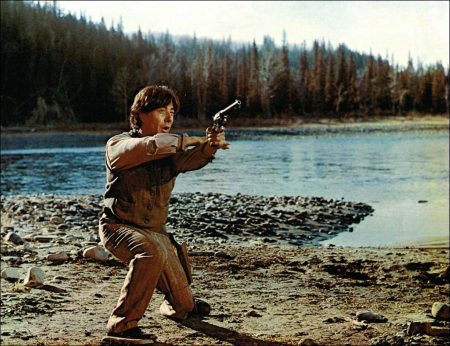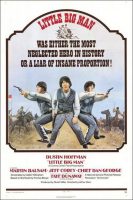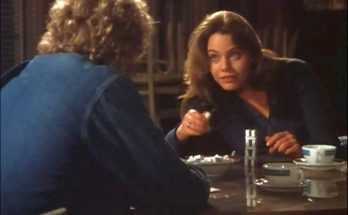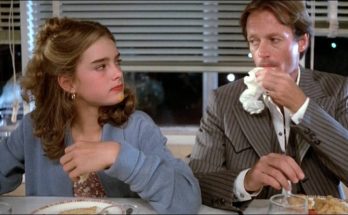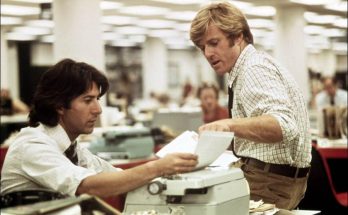Little Big Man movie storyline. In the present day (1970), 121-year-old Jack Crabb, the oldest living man in the world and residing in a hospice, recounts his plentiful life story to a curious historian. Among other things, Crabb claims to have had been a captive of the Cheyenne, a gunslinger, an associate of Wild Bill Hickok, a scout for General George Armstrong Custer, and the sole white survivor of the Battle of Little Bighorn.
Jack begins his story in a flashback to 1859 when he was 10 years old where he and his older sister Caroline (Carole Androsky) survive the massacre of their parents by the Pawnee, and are taken back to a Cheyenne village. Caroline escapes, but Jack is reared by the good-hearted tribal leader Old Lodge Skins. As Jack gets older, he unwittingly makes an enemy of another boy, Younger Bear; however, Younger Bear eventually owes his life to Jack since he saved his life from a Pawnee Indian.
Jack is given the name “Little Big Man” because he is short but very brave. In 1865, when Jack is 16, he is captured by U.S. cavalry troopers during a skirmish and renounces his Native American upbringing in order to save himself. He is put in the care of Reverend Silas Pendrake and his sexually frustrated wife, Louise, who tries to seduce Jack. When he witnesses Mrs. Pendrake having sex with the soda shop owner, Jack leaves the Pendrake household, and religion.
The following year, Jack becomes the apprentice of the snake-oil salesman Merriweather. The two are tarred and feathered when their customers realize that Merriweather’s products are fraudulent. One of the angry customers is Jack’s now-grown sister, Caroline, with whom he reunites. She attempts to mold her brother into a gunslinger named the Soda Pop Kid. Jack meets Wild Bill Hickok at a saloon, and Hickok takes a liking to the young man. When Hickok is forced to kill a man in self-defense, Jack loses his taste for gunslinging and Caroline deserts him.
Another year or so later, Jack becomes a partner in a general store and marries a Swedish woman named Olga (Kelly Jean Peters). Unfortunately, Jack’s business partner turns out to be a thieving scoundrel. The famous cavalry officer George Armstrong Custer suggests the couple restart their lives further west and assures them they have nothing to fear of Indians. They set out, but their stagecoach is ambushed by Cheyenne warriors. Olga is abducted and Jack sets out in search for her. He is reunited with Old Lodge Skins. Younger Bear has become a contrary, a warrior who does everything in reverse. Jack makes friends with the hwame Little Horse, but continues on his search for Olga.
Jack eventually becomes a “muleskinner” in Custer’s 7th Cavalry, only because Custer incorrectly determines that was Jack’s past job. He takes part in a battle against the Cheyenne, but when the troopers begin killing women and children, Jack turns on them. Jack discovers a Cheyenne woman, Sunshine (Aimée Eccles), giving birth. He returns with her to Old Lodge Skins’s tribe.
Sunshine becomes his wife and bears him a child. Jack again encounters Younger Bear, not a Contrary anymore, who is now the henpecked husband of the long-lost Olga. Olga does not recognize Jack, who makes no attempt to make her remember him. Sunshine asks Jack to take in her three widowed sisters as wives and to father children with them. He is reluctant at first, but finally agrees.
In November 1868, Custer and the 7th Cavalry make a surprise attack on the Cheyenne camp at the Washita River. A now-blind and elderly Old Lodge Skins is saved by Jack, but Sunshine, their child, and her sisters are killed. Jack tries to infiltrate Custer’s camp to exact revenge, but loses his nerve to kill Custer.
Little Big Man is a 1970 American Western dramedy film directed by Arthur Penn and based on the novel Little Big Man by Thomas Berger. It is about a white male child raised by the Cheyenne nation during the 19th century. The film is largely concerned with contrasting the lives of American pioneers and Native Americans throughout the progression of the boy’s life.
The movie stars Dustin Hoffman, Chief Dan George, Faye Dunaway, Martin Balsam, Jeff Corey and Richard Mulligan. It is considered a Western, with Native Americans receiving a more sympathetic treatment and the United States Cavalry depicted as villains.
Despite its satirical approach, the film has tragic elements and a clear social conscience about prejudice and injustice. Little Big Man is considered an example of anti-establishment films of the period, protesting America’s involvement in the Vietnam War by portraying the U.S. military negatively.
Little Big Man (1970)
Directed by: Arthur Penn
Starring: Dustin Hoffman, Faye Dunaway, Chief Dan George, Martin Balsam, Richard Mulligan, Aimee Eccles, Kelly Jean Peters, Carole Androsky
Screenplay by: Calder Willingham
Production Design by: Dean Tavoularis
Cinematography by: Harry Stradling Jr.
Film Editing by: Dede Allen
Costume Design by: Dorothy Jeakins
Set Decoration by: George R. Nelson
Art Direction by: Angelo P. Graham
Music by: John Paul Hammond
Distributed by: National General Pictures
Release Date: December 23, 1970
Visits: 100
